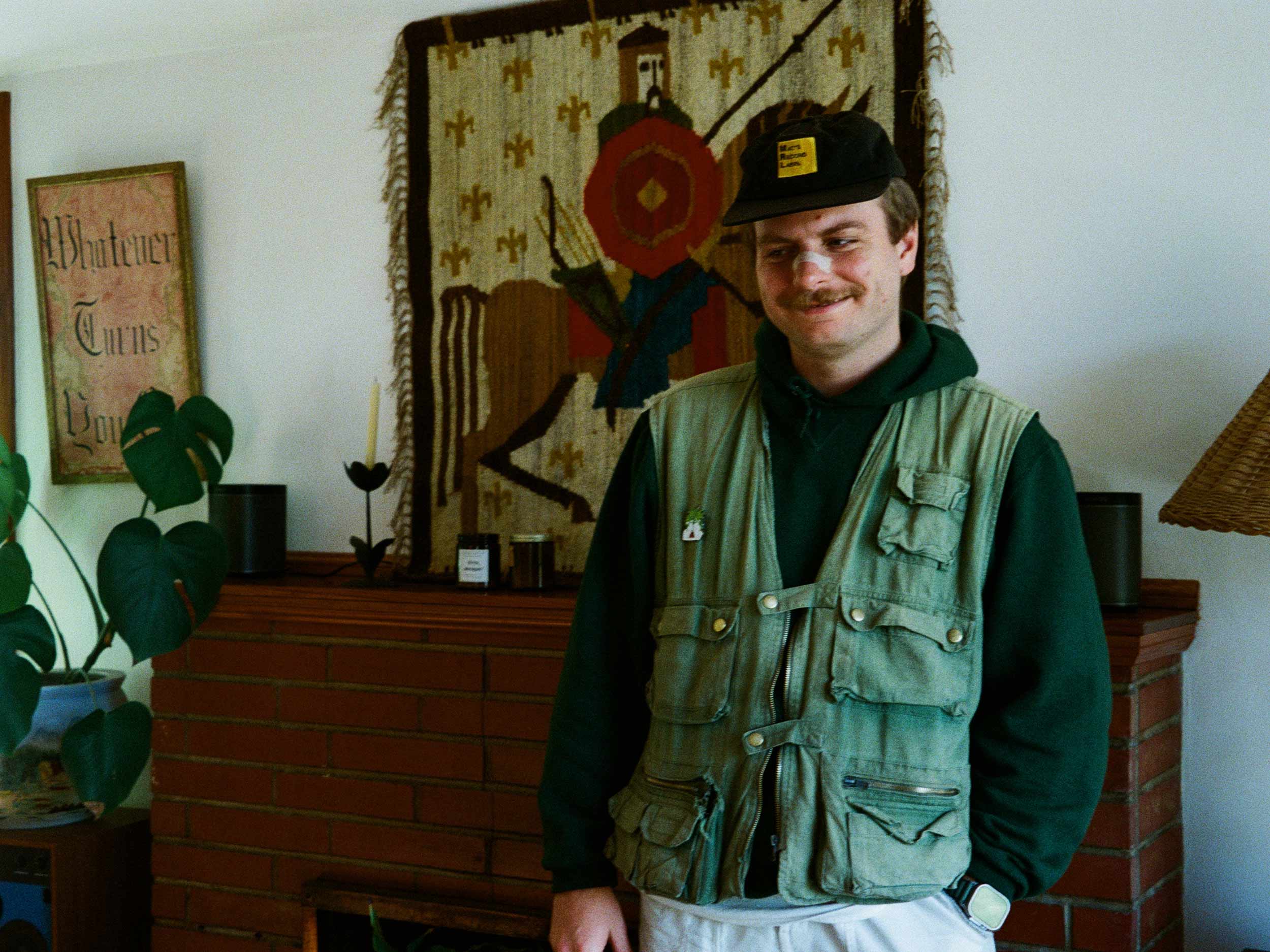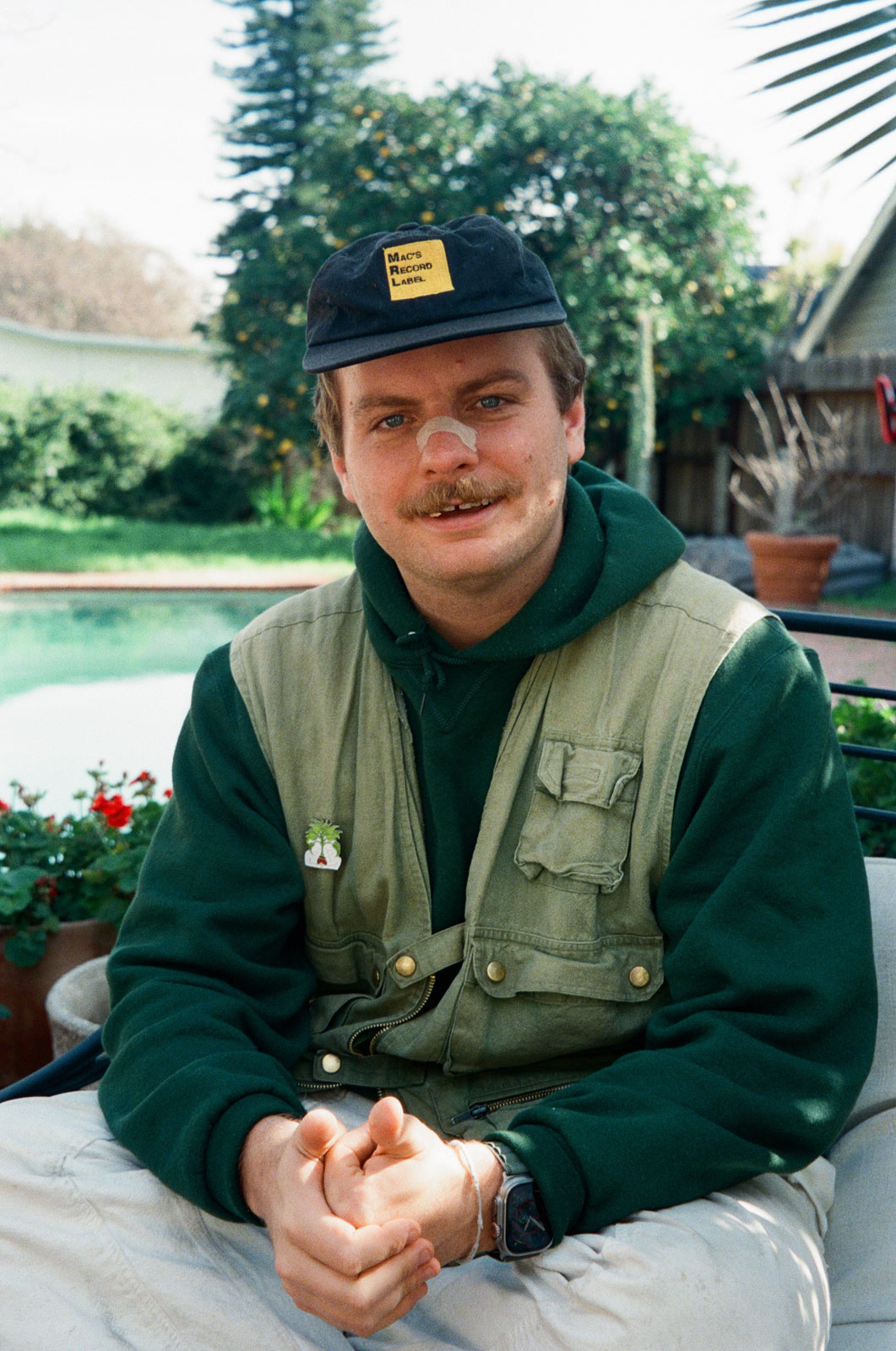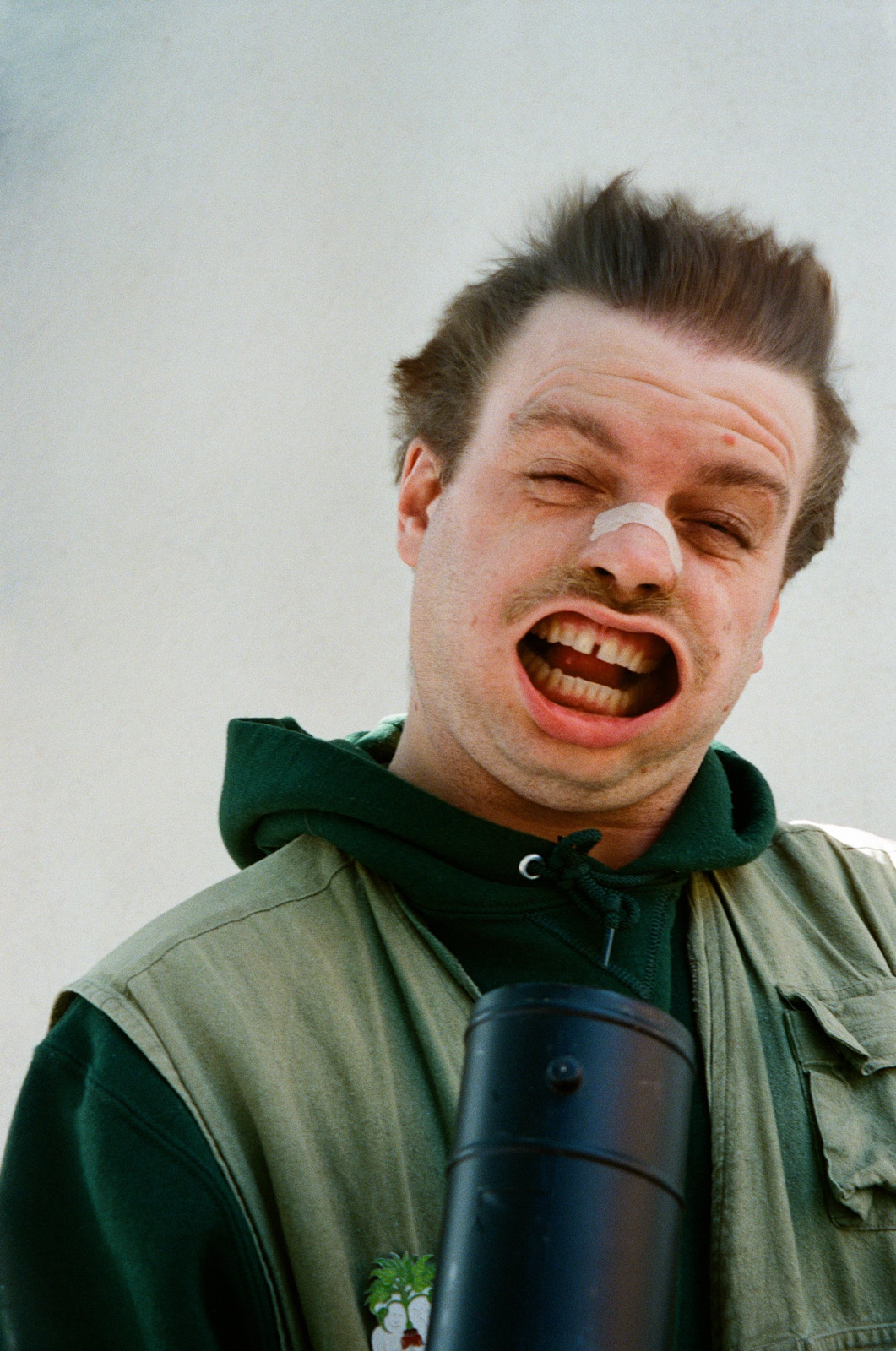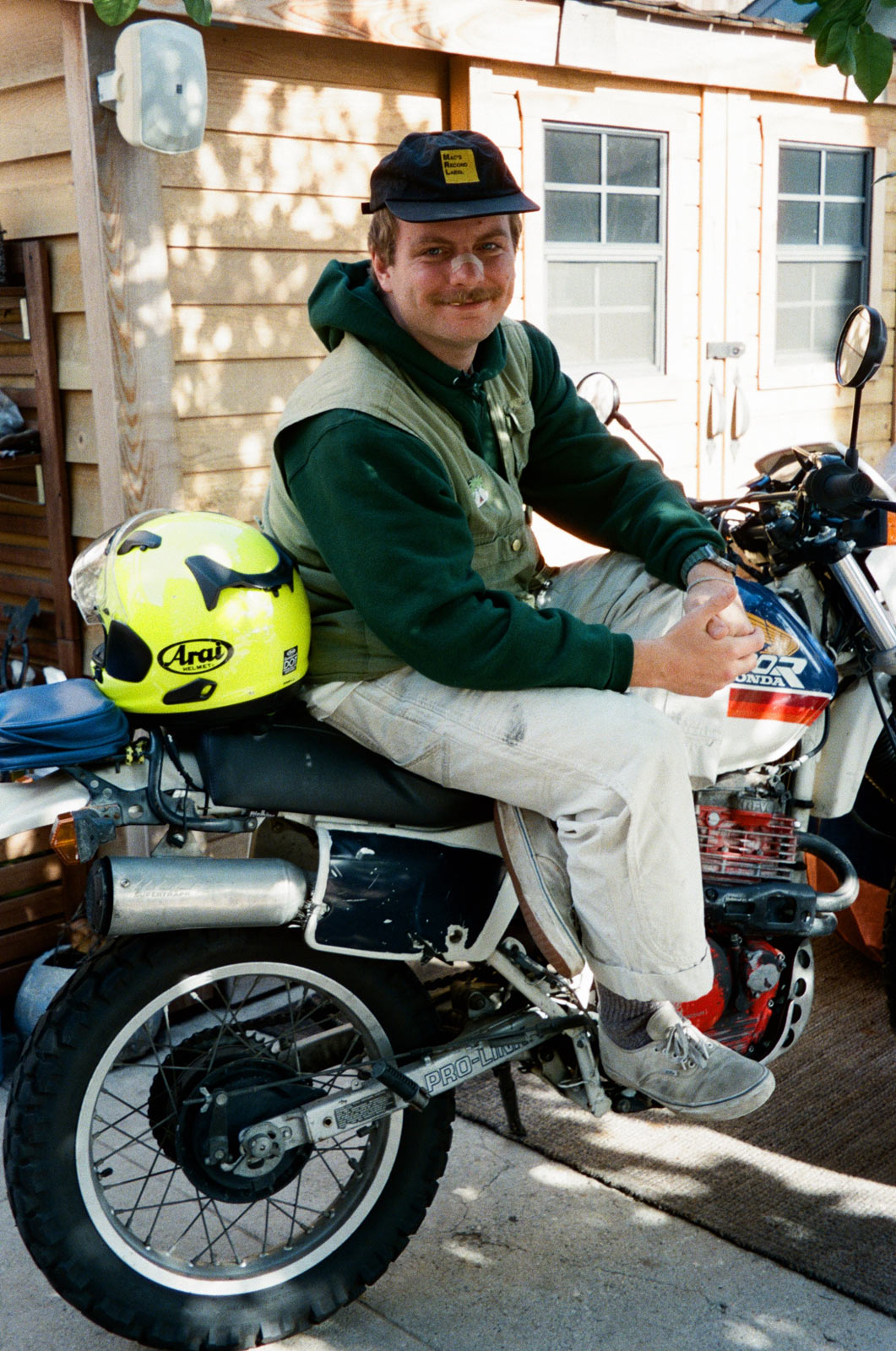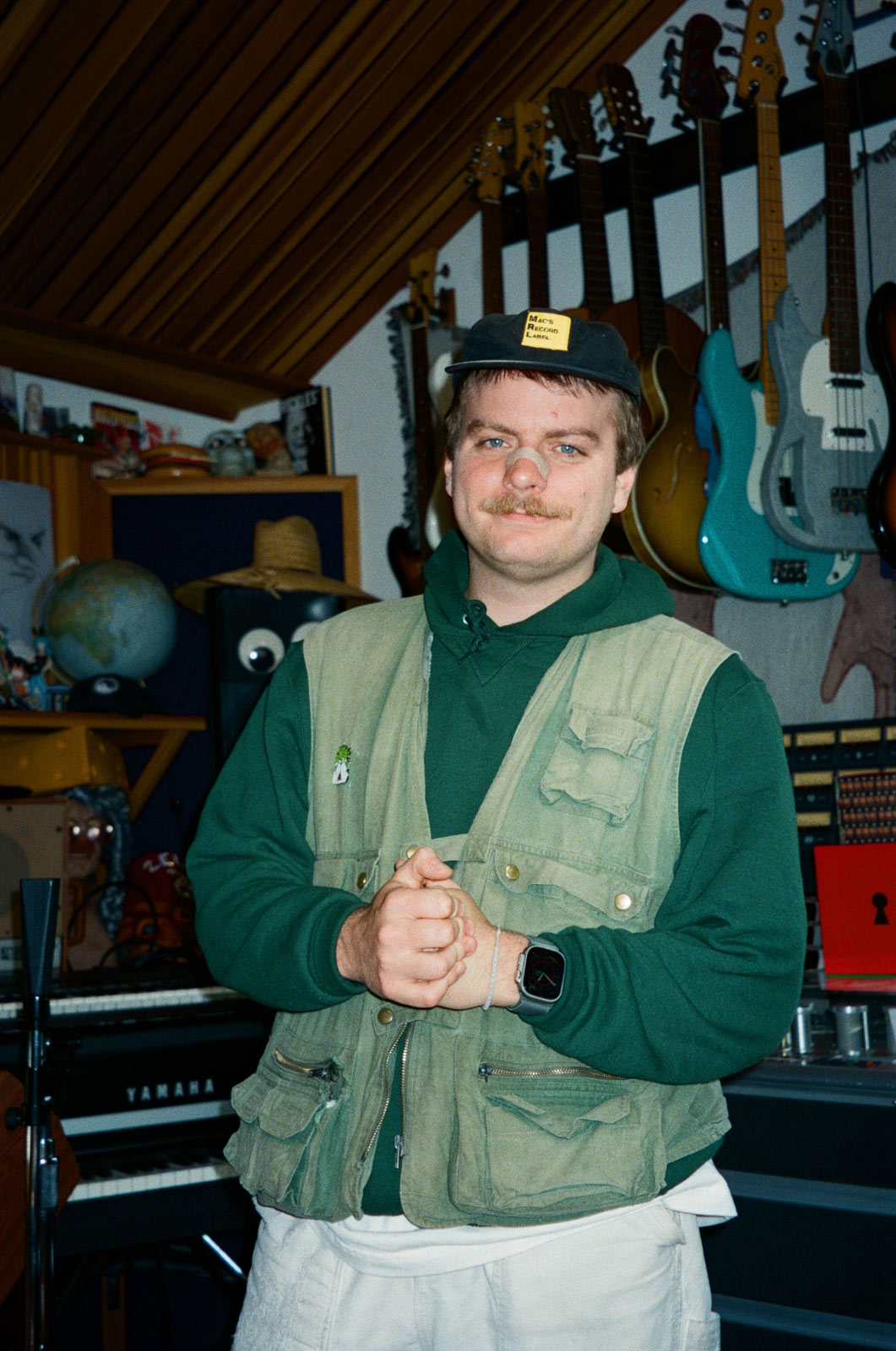The multi-instrumentalist’s latest album is lyric-free, improvised along American highways in the spirit of plein-air painting
Mac DeMarco has never recorded one album in the same place—jumping from his bedroom in Rockaway to his home studio in Los Angeles, to now recording his latest project completely on the road. His nomadic approach to making Five Easy Hot Dogs derived from the constraints of the pandemic. DeMarco took to the road, packing a few instruments and a recording system into his Toyota with no real plan or structure for what the final product would be. He visited old friends and family in his hometown of Vancouver, and was met with nostalgia—listening to The Moody Blues’s “Had to Fall in Love” all the while. Over the course of his journey, DeMarco made an album for the sake of living and experiencing—a value system too often forgotten in the art-making process, especially for creatives with already established careers.
Five Easy Hot Dogs captures the essence of DeMarco—the person and the musician. The relaxed and somewhat bittersweet record falls between stories of love and youth that characterize his earlier works, like 2, and the melancholy melodies of This Old Dog. The new record relies solely on sound—no lyrics—a decision made by the artist to differentiate his work, and to propose something new. Five Easy Hot Dogs debuts a DeMarco without complacency; he invites the range offered in ambiguity—in storytelling unrestricted by the specificities of language.
Following the release of his album, the musician joins Document to discuss the making of Five Easy Hot Dogs, quitting smoking, and his COVID-fueled desire to greet strangers on the road.
Ariana Mamnoon: In the last couple of years, you’ve said that you’re ‘forgoing any sort of normalcy,’ instead making your life ‘completely insane.’ What are you doing to personally wreak havoc, and how do these experiences feed into the music?
Mac DeMarco: People would ask me where I was going, and I’d tell them, ‘I don’t know, see you later.’ I thrive in these kinds of situations—especially when everyone is like, ‘What the fuck do you think you’re doing?’ There were points in my life and my career where I felt like my art and my personal life was one [entity]. A lot of artists have boundaries and put out a public art persona, but that’s horseshit. I am what I make, and that’s that. At some point, it felt like I stopped this—probably due to COVID. I felt domesticated.
Ari: So that’s why you went on the road?
Mac: Something like that. I had a lot of people I wanted to see, some family stuff going on—I had to just go. I’ve never really done that before, either; I’ve toured all over the world, but to do it unregimented is beautiful.
I have a problem with going on vacation: I don’t know how to. I never really did it as a kid, so even when we’re on tour and we have a couple days off, I can’t just do nothing. This was the more expanded version of that, I guess. I like to think of this as plein-air painting—it’s the music version of that, which I guess you could do by just taking an acoustic guitar on a hill. But I wanted to take the whole recording studio to the hill.
Ari: You wrote the songs on this record during your travels on the road. Was there a specific place that resonated with you most?
Mac: The route I took was up to the Pacific Northwest, to Western Canada, across the prairies, and then down to New York—a route I grew up on and have a lot of history with. The record started in the Redwoods, Coastal California area, and for me, it kept that energy. That zone in North America is crazy to me—it has a certain energy or density, it’s wet, it’s not what you think of when you think of California. It’s magic over there.
Ari: And you quit smoking on the trip.
Mac: I did, yeah.
Ari: What was that like? Are you still not smoking?
“I didn’t have any ideas for the record, but I have an inherent musical language built into me—a lot of people do. It’s kind of like having your own alphabet.”
Mac: Yeah I haven’t smoked since. It was one of the hardest things I’ve ever done. It was horrible. I didn’t think it was going to be hard, but I left New York after a month en route to Utah for a festival. When I got into Pennsylvania I thought, You know what? I am going to quit smoking. It’ll probably be four hours of discomfort, and then I won’t be a smoker. But it wasn’t. It was three weeks of horrible, horrible withdrawal, sweatiness, mood swings. I couldn’t put sentences together. I remember being in this coffee shop in Salt Lake City, talking to these two kids who recognized me and asked what I was even doing there. And I mumbled, ‘I’m trying… to find… an Airbnb… What neighborhood.. should I stay in?’ They were confused, I was confused, and it was raining.
I ended up not staying in Salt Lake, and tried to go to this hot spring in Monroe, Utah, but it was all booked up. I almost came back to Los Angeles. I left Utah and went straight to Coachella. I told myself that if I could go to Coachella and continue to not smoke, then I’d be completely good. And I didn’t smoke.
Ari: You say that you had no sound or theme in mind when creating this record. By the end of the process, did you find any sort of connection between tracks?
Mac: Yeah. Even my family was like, ‘Sweetheart, why didn’t you put your voice in any of the songs?’ I said I didn’t have any ideas for the record, but I have an inherent musical language built into me—a lot of people do. It’s kind of like having your own alphabet. It’s something, however, that is less apparent now.
So many things are made with sample packs, with MIDI, on the computer—but I knew the record would sound like me. I only used the instruments I brought on the road. To me, the record sounds like an Ewok village. The beauty in it, for me, came up from where I was at, at the time. I would make the song, record it, then listen to it while driving to the next place. I recorded a couple songs in my high school bedroom, places I grew up in, neighborhoods that were familiar to me.
Ari: How does this record fit into the rest of your discography?
Mac: I think it is a new flavor for me, for sure. With This Old Dog, I discovered how to paint feelings with music—or maybe I was more comfortable doing it. I tried on 2 and Salad Days, but maybe it didn’t read like this. Before, the music would sound upbeat, but the lyrics [were] a bit drab. I think I have become more capable of portraying my feelings [without lyrics]. Maybe people won’t take it like this at all, but that’s what it was for me.
Ari: ‘Moonlight on the River’ is one of those bittersweet songs for me. I love that song.
Mac: I do, too. Kiera [McNally] says she sees that song on TikTok, but I’m not on TikTok.
Ari: That’s probably good.
Mac: It’s interesting, though—songs like ‘Moonlight on the River,’ for example—that album is about my father passing away. But he didn’t pass away when I made that record, he passed away right before I made this record. But it’s not apparent. That’s the beauty of it all, too: For me, it’s one thing, but it’s a different thing for you. Keeping it accessible, or on a level that everyone can connect to, break off their own piece of, and go running with it.
Ari: The album title is Five Easy Hot Dogs—can you break that down?
Mac: My friends and I went to a Lakers game a few years ago. Jack Nicholson walked onto the court, and my friend Scott says, ‘Well, looks a little more like five easy hot dogs,’ as opposed to five easy pieces. Don’t get me wrong, I love Jack. He’s the sexiest man alive, my hero. It became a concept to me. Now, it represents a style of living, about finding the secret. The search, the way you search for it, peacefulness—that is five easy hot dogs.
Ari: Did you adopt a new character when on the road? Did you change your approach to how Mac makes music?
Mac: It was adopting a new way of how Mac lives life. I mean, COVID was fucked up. I didn’t do anything, but the last thing I wanted to do was make art. I felt like I got domesticated. The whole idea on the road was to wake up early and do as much as I could—say what’s up to strangers, and put myself in situations that I haven’t been in. Kind of the same way I was while touring when I was younger. Anytime I started becoming lazy, or things slowed down, I would move to the next city. I wanted to enjoy life, and that’s the trick. Sometimes, you don’t enjoy being alive—you take it for granted. But when I’d feel this, I’d push myself and say, ‘C’mon Mac, let’s go.’


